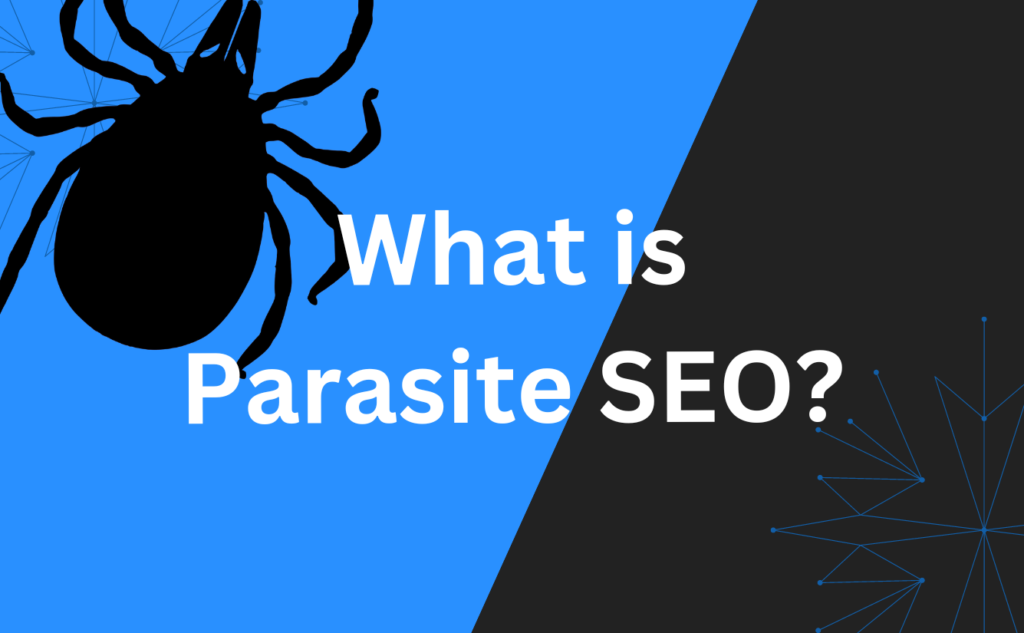Parasite SEO! Struggling to get your target keywords to rank despite your best SEO efforts?
It might be time to explore an unconventional yet effective strategy: parasite SEO.
This approach can propel your content to the top of search results more quickly than building authority from scratch on a new domain.
But, as with any strategy, there’s a right way and a wrong way to go about it.
In this guide, we’ll define parasite SEO, explore its potential benefits, and provide actionable insights on how to effectively use this strategy to enhance your SEO efforts.
What is Parasite SEO?
Parasite SEO is a tactic where you leverage the authority of established websites to boost your own site’s visibility in search engine results. By placing your content on high-authority platforms like popular blogs, forums, or social media pages, you can significantly improve your content’s position in search rankings.
Example: Imagine writing a guest post for a top industry blog that already ranks well on Google. By associating your content with this high-authority domain, your content is more likely to rank higher than if published on a less authoritative site. This strategy benefits from the host platform’s established credibility, accelerating your content’s visibility.
How Does Parasite SEO Work?
Parasite SEO operates by capitalizing on the existing authority of high-domain platforms. Here’s how it can work for you:
1. Leverage Established Platforms: Publish content on sites with high domain authority. These platforms already have a strong reputation, which can help your content rank better in search results.
2. Create High-Quality Content: Ensure your content is engaging, informative, and adheres to SEO standards. High-quality content increases the likelihood of it being shared and linked back to, further enhancing its visibility.
3. Monitor and Adapt: Keep an eye on your content’s performance and make adjustments as needed. Changes in search engine algorithms or platform policies can impact your results.
Types of Parasite SEO Strategies
Not all parasite SEO tactics are created equal. Here are some strategies you might consider:
1. Guest Blogging: Write for high-ranking blogs in your industry. This can drive high-quality traffic to your site and improve your search rankings.

2. Online Forums and Communities: Engage in forums relevant to your niche. Share valuable insights and strategically place backlinks to your site.
3. Social Media Platforms: Use social media to share engaging posts and multimedia content that links back to your website. Optimize your content with SEO-friendly titles and descriptions.
4. Review Sites and Testimonials: Post genuine reviews or testimonials on relevant third-party sites. Include links to your website to enhance your SEO.
5. Wikis and Online Encyclopedias: Contribute to wikis and online encyclopedias, following their editorial guidelines. Link back to your site when allowed to improve its authority.
Does Parasite SEO Really Work?
Parasite SEO can be highly effective, especially for gaining quick visibility and improving search rankings. However, it’s crucial to use it ethically and in alignment with platform policies to avoid penalties. Here’s what you need to consider:
– Adhere to Guidelines: Follow the rules of both the host platform and search engines to prevent any penalties. Check Google search reputation abuse policy for more.
– Evaluate Risks: Your success with parasite SEO depends on the stability and reputation of the host platform. Changes in their status can affect your content’s performance.
– Understand Costs: High-quality content and some high-authority platforms may come with additional costs. Invest in compelling content and consider these expenses when planning your strategy.
Is Parasite SEO Right for You?
Parasite SEO is particularly useful in certain scenarios:
– Highly Competitive Niches: Gain an edge in saturated markets by leveraging established platforms.
– Need for Quick Results: Ideal for rapidly boosting traffic and visibility.
– Limited Budget: Offers a cost-effective alternative for startups and small businesses.
– Capability to Produce Quality Content: Ensure your content adds genuine value to the host site and its audience.
Best Practices for Parasite SEO
To maximize the benefits of parasite SEO, follow these best practices:
1. Choose the Right Platforms: Opt for reputable sites that align with your industry and audience.
2. Focus on Quality Content: Ensure your content is engaging, informative, and valuable to stand out.
3. Respect Platform Guidelines: Adhere to the rules of the host platform to avoid penalties and maintain positive relationships.
4. Strategically Place Links: Integrate links naturally within your content to enhance reader experience and SEO.
5. Monitor and Adapt: Regularly review your performance and adjust your strategy as needed.
6. Diversify Your Efforts: Combine parasite SEO with other SEO tactics, such as on-page optimization and technical SEO, for a comprehensive approach.
7. Start Small and Scale: Test with a few platforms, evaluate what works, and scale your efforts accordingly.
FAQs
What is Parasite SEO?
Parasite SEO is a tactic where you leverage the authority of established websites to boost your own content’s visibility and ranking in search results.
Is Parasite SEO Similar to Black Hat SEO?
It can tread close to black hat SEO if misused, it is not inherently the same. Following ethical practices and platform guidelines is essential to ensure it remains a legitimate strategy.
Does Parasite SEO Work?
Yes, parasite SEO can be effective for gaining quick rankings and visibility. However, it must be implemented ethically and combined with other SEO tactics for the best results.
Conclusion
Parasite SEO is like a turbo boost for your SEO strategy. By leveraging the authority of established platforms, you can quickly enhance your content’s visibility and search rankings. It’s a valuable tactic for gaining rapid traction, especially for new sites or competitive niches.
However, remember that parasite SEO should complement a broader SEO strategy, including content marketing, technical SEO, and link building. Use it responsibly to protect your brand’s reputation and avoid penalties. Think of it as a powerful tool in your SEO toolkit rather than a standalone solution.




